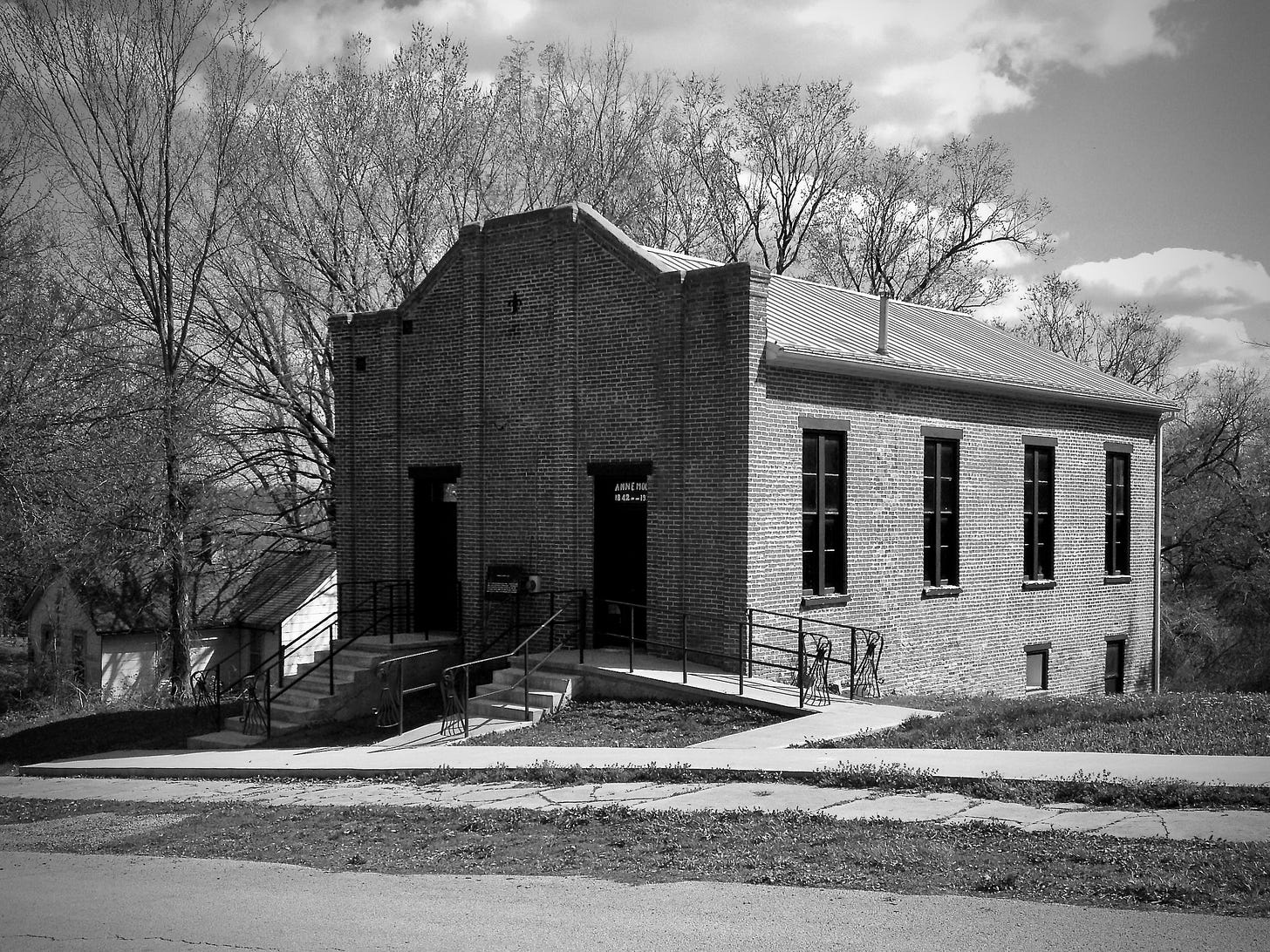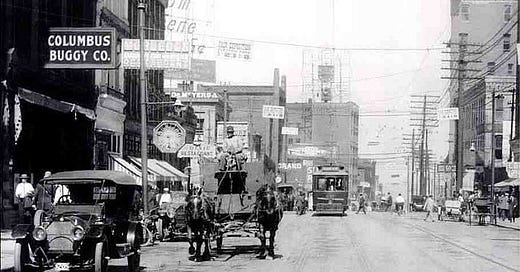
Do pastors ever truly preach the same sermon twice? No, not really, even when we revisit the same sacred passage. Why? Preaching is not merely rhetoric or recitation. It involves the dynamic intersection of God's Spirit, the unique souls assembled to receive His Word, and the Preacher himself. These particular conditions rarely align the same way twice.
The sermon selected by our producers for this Lord’s Day is one I’ve shared many times across continents and throughout America. Christian Focus Publications, a fine publisher in the UK, turned the sermon into a book, now in its third edition, and translated it into several languages. Yet, at its heart, it remains simply an exposition of Philippians chapter one, verse six.1 It centers upon a single narrative to illuminate that divine truth: my own testimony.
Preaching is not merely rhetoric or recitation. Preaching involves the dynamic intersection of God's Spirit, the unique souls assembled to receive His Word, and the Preacher himself. These particular conditions rarely align the same way twice.— Michael A. Milton
This is the story of one sinner saved by grace, a soul plucked from ruin, transformed by Jesus Christ’s steadfast love and power. I pray that as you listen, the Holy Spirit will speak directly to you—perhaps to assure your heart, extend forgiveness, grant hope, or gently, urgently redirect your life to a path of abundant and eternal life.
I first delivered this sermon at an African Methodist Episcopal Church in Kansas City. I had not yet attended seminary at the time, though I was licensed to preach as an elder in the Presbyterian Church (PCA). There was perhaps no better setting for such a message than this humble, faithful congregation. Their beloved sanctuary was marked by need, not from neglect, but by necessity. Faced with choosing between paying the pastor or the plumber, the congregation faithfully supported their minister. As a result, the windows showed bullet holes and gaps, serving as a reminder of the violence that had surrounded this sanctuary.
While I preached, a lively call-and-response developed—"sing-song”—full of energy and spontaneity—an offering from Negro spirituals that now resides within the vibrant spiritual landscape of Kansas City, nestled between the Midwest, the South, and the frontier. But as I wove my testimony into the sermon, I spoke in the third person. The congregation listened attentively, believing this was an unfamiliar story about some distant prodigal. Then came the silence—a holy hush—as they pieced together the puzzle: “He is that man.” When, at last, I confirmed their realization, the silence erupted into spontaneous praise—an irrepressible joy unique to our African American brothers and sisters.
The congregation listened attentively, believing this was an unfamiliar story about some distant prodigal. Then came the silence—a holy hush—as they pieced together the puzzle: “He is that man.”
Yet the spiritual reverie soon collided sharply with reality. As I led the congregation in prayer, sirens wailed in the distance. Gunshots rang out nearby, unmistakable through the shattered glass. We continued praying. Suddenly, the church doors opened, and there stood a Kansas City policeman, accompanied by a middle-aged man whose toughness was unmistakable, yet who now limped, bleeding visibly from a fresh wound.
The pastor quietly approached, whispering urgently, “Preacher, this man was just involved in something serious—a drug deal gone wrong out in that empty lot. He was grazed by the bullet we heard, and before going to jail, he asked the policeman if he might first come inside to pray. The officer agreed. Will you pray for him?”
I nodded silently. The wounded man moved toward the front, limping but resolute. Tears filled his eyes, and he trembled from pain, from arrest—and, as he later confided—from a powerful awareness of God's presence.
“Preacher, please pray for me,” he whispered, “I need the Lord.”
Standing before the Communion Table, I laid a hand on his head, inviting the pastor to join me. Even the policeman bowed reverently among the congregation as I prayed:
“Lord, You are the Great Physician, who sent Your Son to heal and restore, to show forth Your power and glory through our Redeemer, Jesus Christ. Heal this man's leg and his wounded spirit. This son of Yours calls to You now for new life. Hear him, Lord, as surely as You once heard me. As You transformed the Man of the Tombs, as You transformed Mike Milton, transform this man so that even his prison cell might become a chapel dedicated to Your glory. In Jesus' Name. Amen.”
I often cannot remember yesterday’s supper, but I will never forget that sacred night. I've preached in fields and auditoriums, chapels, cathedrals, and some of the most breathtaking sanctuaries in the world. Yet no place surpasses that humble "Kirk O' the Hood," as a friend affectionately referred to it.

So, too, you come to Christ, just as you are. We all approach Him limping, wounded by our pasts and our pride. Yet, we all depart as that man did—restored, filled with hope. For the promise is sure:
“And I am sure of this, that he who began a good work in you will bring it to completion at the day of Jesus Christ” (Philippians 1:6 ESV).
May the Lord bless and keep you in the name of the Father, the Son, and the Holy Spirit. Amen.
Manuscript
Questions for Small Group Discussion or Personal Reflection
Study Guide
Consider a study of the parallel passages: Cross References
1 Corinthians 1:8: “. . . who will sustain you to the end, guiltless in the day of our Lord Jesus Christ.” See also: Philippians 1:10; Psalm 138:8; Philippians 2:16; John 6:29; 2 Corinthians 7:1; 9:8; Galatians 3:3, 10; 1 Thessalonians 1:3; Psalm 57:2; 2 Corinthians 1:14; 1 Thessalonians 5:24’
The Song: “What God Starts, God Completes”
Google Deep Dive Podcast on What God Starts, God Completes
Listen to the Google Deep Dive podcast on What God Starts, God Completes.
Read More About It

















Share this post